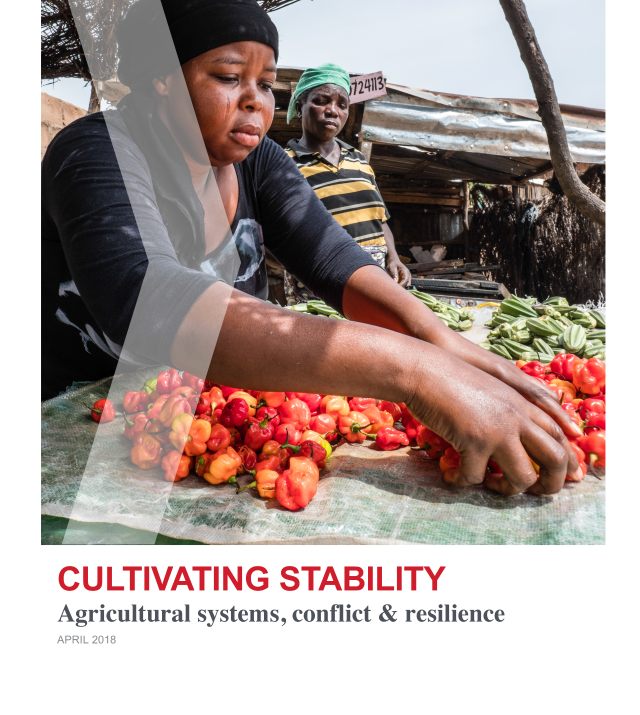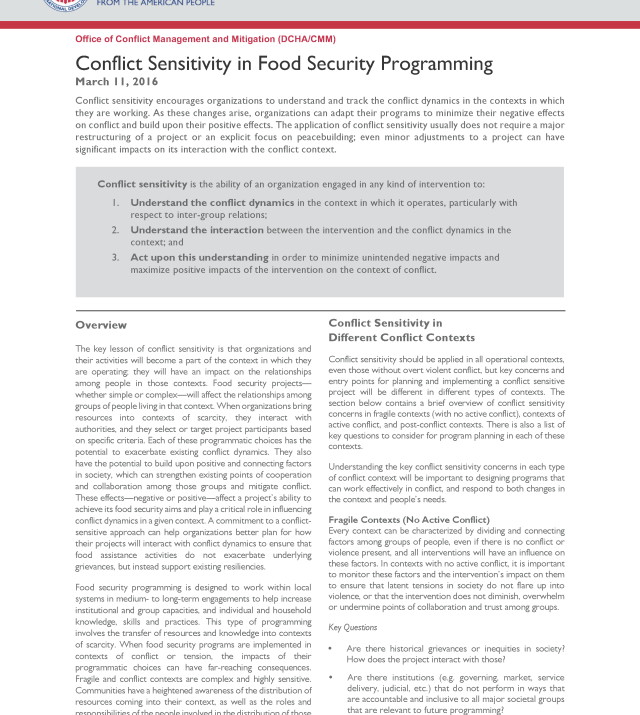
Harvesting Peace: Food Security, Conflict, and Cooperation

Since 2008, when rapid increases in the prices for major grains helped to trigger outbreaks of civil unrest in more than 40 countries, scholars and policymakers have paid increased attention to the potential influence of global food prices on social and political instability. Compelling and provocative headlines have suggested that there is a direct relationship between food insecurity and conflict. However, Harvesting Peace: Food Security, Conflict, and Cooperation – the latest edition of ECSP Report – finds that the story is more complicated than those claims often imply.
Food insecurity both results from and contributes to repeated rounds of armed conflict in many places. Conflict can reduce the amount of food available, disrupt people’s access to food, limit families’ access to food preparation facilities and health care, and increase uncertainty about satisfying future needs for food and nutrition. Likewise, food insecurity may help to sustain conflict or reverse post-conflict recovery efforts.
Drawing insights from scholars and humanitarian organizations, the report recommends more collaboration between peacekeepers and food programs. “With acute food insecurity as a key element of conflict, long-term perspectives must accommodate short-term solutions as well. Both humanitarian assistance and development tools must be wielded with skill and sensitivity – and in tandem,” writes report author Emmy Simmons.

